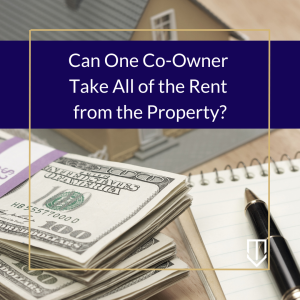 Often, the question of distributing rent earned on a co-owned property arises in the context of cotenants. Cotenants have equal rights to possess their property with their fellow cotenants. This means that no one cotenant can exclude another from the property. One cotenant can, however, assign their right of possession to a third party.
Often, the question of distributing rent earned on a co-owned property arises in the context of cotenants. Cotenants have equal rights to possess their property with their fellow cotenants. This means that no one cotenant can exclude another from the property. One cotenant can, however, assign their right of possession to a third party.
This can happen when a cotenant rents out part of the property to a tenant. In this situation, the other cotenants still have the right to possess the property, but they do not have a right to exclude the tenant. The tenant is also prohibited from excluding the other cotenants from occupying the property.
How can a cotenant lease property they co-own?
 California Partition Law Blog
California Partition Law Blog


 Can a Tenant in Common Force a Sale?
Can a Tenant in Common Force a Sale?